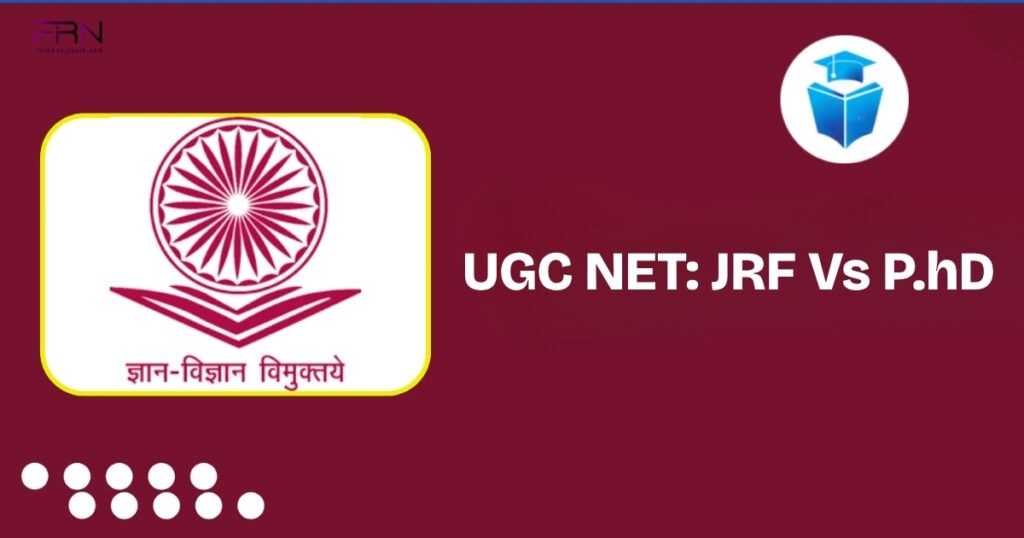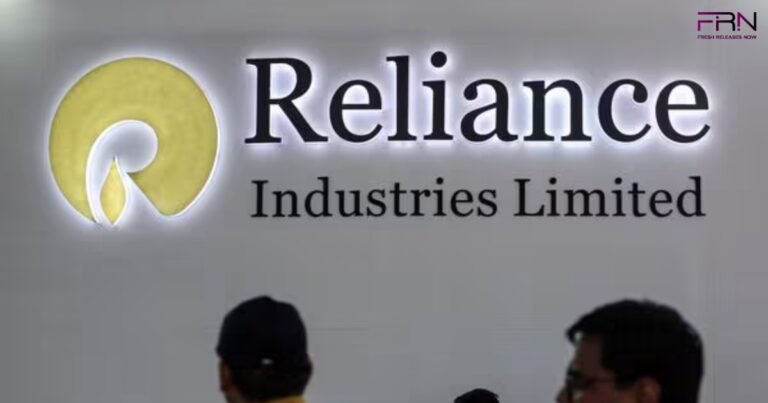
For students who desire to work in research or teaching, passing the UGC NET 2025 is a huge deal. After passing the test, candidates usually have two major options: a Junior Research Fellowship (JRF) or a PhD Fellowship. Both choices will help you do better in research, pay for your studies, and move higher in your academic career. These fellowships may look the same, but they are not the same.
It depends on your goals, plans, and money demands, which one you choose. It will be easier and smarter for you to choose if you know the primary distinctions. Let’s look at a basic comparison to assist you in deciding what to do after passing the UGC NET 2025.
What is a Junior Research Fellowship (JRF)?
People who do particularly well on the UGC NET test can get a Junior Research Fellowship (JRF). This fellowship is for people who are good in school and also helps pay for full-time research work. Students can use this grant to pursue research in Indian universities or research centres.
The main things of JRF
- Who can obtain it: People who do well on the UGC NET test and score more than the cut-off in their subject can get JRF.
- How long does it last?
The whole thing lasts for five years.
- The first two years: You are a Junior Research Fellow (JRF).
- You will stay a Senior Research Fellow (SRF) for the next three years if you do a good job.
- Amount of the fellowship:
- ₹37,000 a month for the first two years (as JRF)
- ₹42,000 a month for the next three years (as SRF)
- Extra Benefits: Depending on the rules of your university or research centre, you may also obtain a House Rent Allowance (HRA) and yearly contingency funding.
- Main Purpose: JRF lets you perform full-time research, which normally leads to a PhD.
What is a fellowship for a PhD?
When students start a PhD program, they can earn a PhD Fellowship, which is money to aid them. This help comes from universities or other groups that offer cash. Students don’t necessarily have to pass the UGC NET, although sometimes they do. The regulations and the amount of money can fluctuate depending on the university or funding body.
What to Look for in a PhD Fellowship:
- To be eligible, students must follow the university’s guidelines and obtain a research guide. Some programs require UGC NET, but most do not.
- Length: The fellowship normally lasts between three and five years.
- The amount of the fellowship is between ₹12,000 and ₹35,000 a month for students. The amount depends on who supplies the money, such as the university, CSIR, DST, ICSSR, or other groups.
- Funding Source: The money can come from the government, state programs, central universities, or even grants from other countries.
- Flexibility: Some universities let people work while they get their PhD.
Big Differences Between JRF and PhD Fellowships
There are some big variations between JRF (Junior Research Fellowship) and PhD Fellowships.
JRF: JRF is for people who do well on the UGC NET exam and meet the requirements. It gives ₹37,000 to ₹42,000 a month, plus housing and research funds. The fellowship lasts for up to five years. Students must pass a performance check after two years in order to move on to SRF (Senior Research Fellowship). JRF only lets you do research full-time, and it’s quite competitive because there aren’t many seats.
PhD Fellowships: Students who get into a PhD program with the help of a research guide or supervisor can earn PhD Fellowships. You don’t necessarily have to take the UGC NET. Depending on the university or funding source, these fellowships pay between ₹12,000 and ₹35,000 a month. The length is usually between three and five years. Every college has its own rules for checking performance. PhD Fellowships, on the other hand, are more flexible and can let you do research part-time, which is good for people who work. Also, they are easier to get there, depending on how the university accepts students and how much money is available.
The Good and Bad Things About Each Fellowship
Junior Research Fellowship (JRF)
Pros:
- JRF pays more than most PhD fellowships.
- It is well-known throughout India and helps your academic profile.
- It gives you clear goals and great academic help.
- JRF credentials are preferred by the best research institutions and universities.
Cons:
- It’s hard to get because only the best NET scorers can get it.
- You have to undertake research full-time and stay dedicated.
- It has due dates and checks on how well it’s doing on a regular basis.
PhD Fellowship
Pros:
- It’s easier to receive, and there are more ways to get money for it.
- It’s fantastic for people who work that they can perform research part-time.
- Some fellowships are only for certain colleges or fields of study.
Cons:
- The amount of money you earn depends on the school and may not be much.
- It might not be as well-known or respected as JRF.
- Every school has its own rules and support systems.
How to Decide Between a JRF and a PhD Fellowship
The ideal fellowship for you will depend on your goals and your situation. Here are some simple ways to help you make a choice:
1. Think about what you want to do with your life
If you want to work in research or teaching for a long time and wish to get into the best institutions or research centres, JRF is the superior choice.
2. Look at what you need money for
Every month, JRF provides you with additional money. So, if you need a lot of money to help you through your PhD, a JRF is the way to go.
3. Check How Flexible You Are
A PhD fellowship is more flexible and better for you if you already have a job or wish to work while you complete your studies.
4. Think about your guide and your project.
The type of fellowship doesn’t always matter as much as having a good research guide and a solid project. Pick the option that gives you more help and a better place to do research.
Last Thoughts
People who pass the UGC NET 2025 can pick between a JRF for better salary and academic value or a PhD fellowship for more freedom. Choose based on your goals, budget, and way of life. Always think about your guide, project, and school. Making a good choice today will help you have a great and successful career in research.



